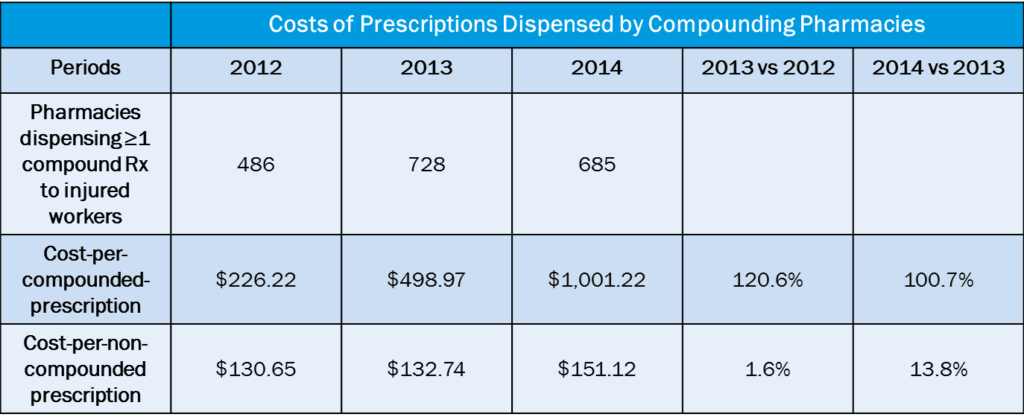
As we’ve discussed before, compounded medications pose safety concerns because they do not have standardized dosages and duration for use, and do not undergo the same rigorous drug review process as commercially available drugs, which are approved by the U.S. Food and Drug Administration (FDA).
In addition to the safety concerns posed by these products not undergoing FDA review, the cost of some compounds can be tens or even hundreds of times more expensive than similar prescriptions or over-the-counter products that are readily available to injured workers.
Analyzing the Costs Associated with Prescriptions Dispensed at Compounding Pharmacies
Express Scripts researchers examined the difference in cost-per-prescription for compounded medications to non-compounded medications used by injured workers and dispensed in compounding pharmacies in the U.S. between 2012 and 2014. We found significant cost increases year-over-year.
These trends require action.
A Solution to Change the Trend
Express Scripts combats this rising trend through our compound management solution. The negative trend reported in our 2015 Workers Compensation Drug Trend Report reflects our effective compound strategies. Last year, Express Scripts Workers’ Compensation compound management solutions helped lower spending on these products by 33.7%
Approval is required prior to filling compounded medications at the pharmacy. This approval process allows the payer to make a decision at the time the prescription is filled. Additional physician and injured worker outreach communications are available on compounded medications to bring awareness of the associated risks and ensure that they are clinically necessary.
Of course, there are certain instances when a compounded product is the only clinically appropriate option – such as for patients who can’t swallow pills or who have an allergy to on of the ingredients in a commerically available alternative. But these instances are very rare, and our compound management solution ensures that these patients are still able to access these medically necessary compounds.





























